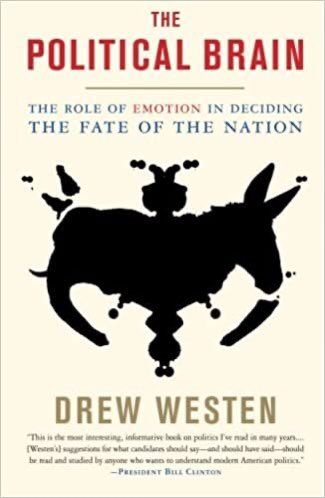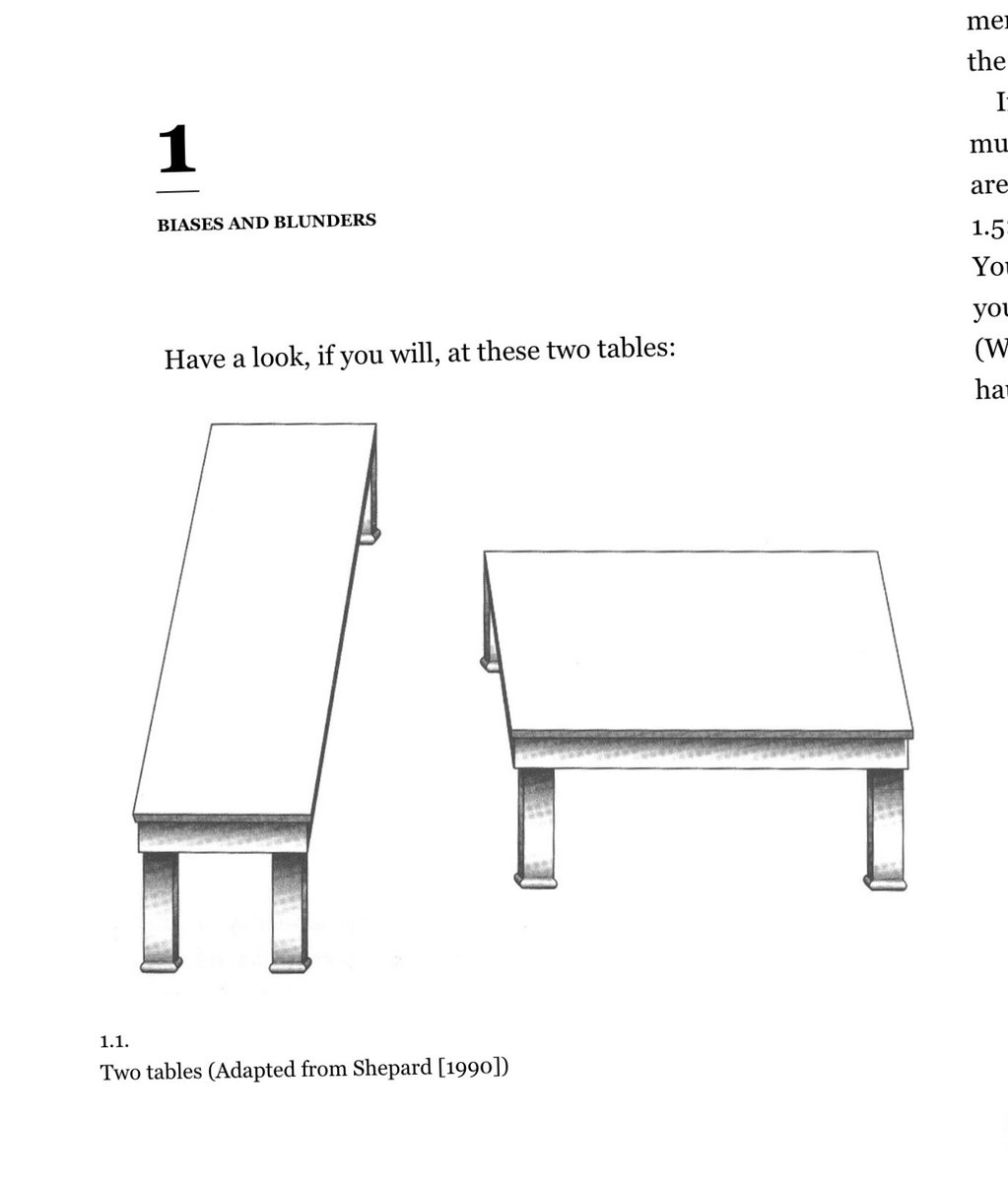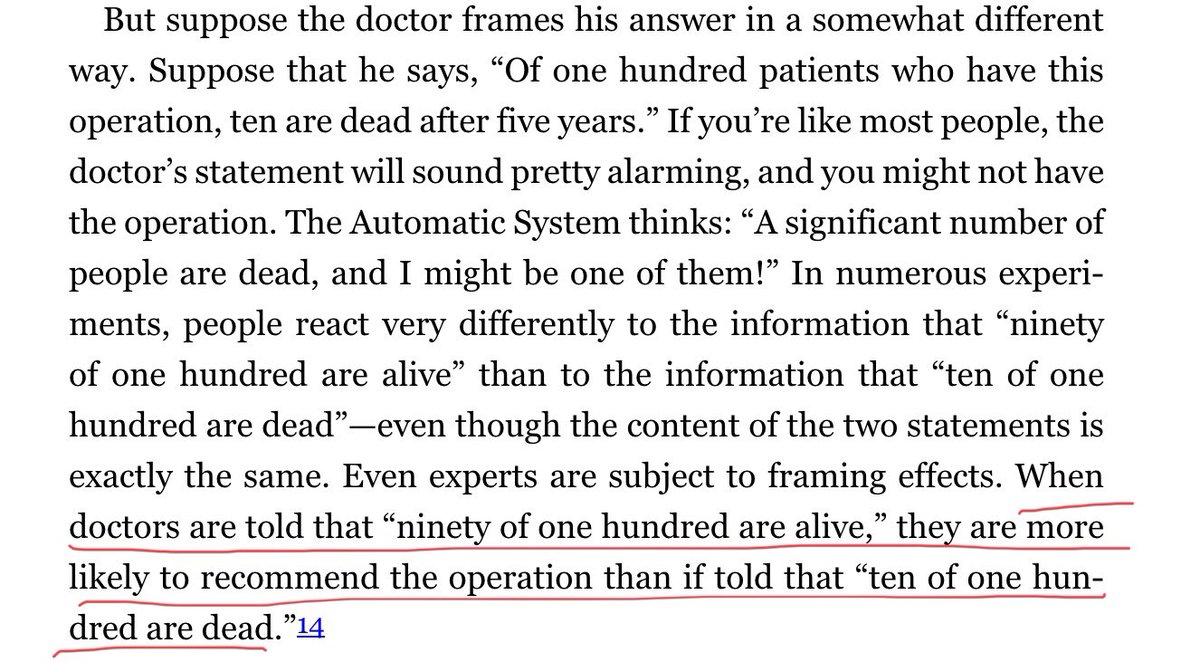I’m volunteer hostile fact checking Nudge because I hate myself and I thought it would be a bunch of n=30 fMRI studies and priming stuff but the first reference is just a blog post from 1997 (third image is commentary)
sometimes it will be a reference to a popular book with no page number and you have to dig hard to figure out that it’s an n=30 fMRI study http://birc.jaredjustus.com/assets/publications/Westen,%20Kilts%202006%20J%20Cognit%20Neurosci.pdf
this is the carefully-constructed optical illusion that’s supposed to convince you that people are inherently biased and can’t think good
that’s one of the rare priming studies that was so influential people bothered to try to replicate it and failed - in 2005, three years before Nudge was published https://www.researchgate.net/profile/Shigehiro_Oishi/publication/7517366_The_influence_of_chronically_and_temporarily_accessible_information_on_life_satisfaction_judgments_Journal_of_Personality_and_Social_Psychology_893_395-406/links/56635f1e08ae15e7463138bb.pdf
this claim cites a review article from 1974 that in turn cites a paper from 1969 that’s lost to the internet but it seems not-very-explanatory if it’s true at all based on recent trends
A history claim (1) citing a popular book (2) that cites two obscure ancient math papers (3) - can’t find evidence for people “asserting” this at the time (even though it seems reasonable to investigate, not “bias”), but they seem to have been kinda right if so? (4)
This claim doesn’t even seem like bullshit, except it turns out the cited article doesn’t make it, or mention doctors at all, or report any results but “the majority” https://educipta.com/wp-content/uploads/2014/10/The-Framing-of-Decisions-and-the-Psychology-of-Choice.pdf
also of course there are good reasons to take “framing” cues into account and it’s hardly irrational to do so but that’s a deeper topic
Lake Shore Drive in Chicago is a popular if ambiguous example - 1) Nudge, 2) pro-Nudge blog, 3) Nudge critic
huh or maybe not? could be 45.3% or 33.6% (gotta get those significant digits) https://www.sciencedirect.com/science/article/abs/pii/S1499404606602789
Muzafer Sherif’s work should probably come under a lot more scrutiny since he was a known faker https://www.theguardian.com/science/2018/apr/16/a-real-life-lord-of-the-flies-the-troubling-legacy-of-the-robbers-cave-experiment
This is the authors’ summary of Timur Kuran’s Public Truths, Private Lies (which I love), on preference falsification. It’s a poor but extremely funny summary if you’ve read it, idk how to explain https://ir.lib.uwo.ca/cgi/viewcontent.cgi?article=1026&=&context=economicsperg_ppe&=&sei-redir=1&referer=https%253A%252F%252Fscholar.google.com%252Fscholar%253Fhl%253Den%2526as_sdt%253D0%25252C29%2526q%253Dtimur%252Bkuran%2526btnG%253D#search=%22timur%20kuran%22
people just didn’t realize that the gulags were unpopular! if only someone had spoken out
TIL “don’t mess with texas” was about littering?? apparently the slogan was a successful nudge! except littering in the whole country went way down at the same time, undermining the causal inference the authors push https://kab.org/wp-content/uploads/2019/08/LitterinAmerica_ExecutiveSummary_Final_0.pdf
I’m pausing this now - here are some others’ lessons from volunteer fact checking popular science books https://statmodeling.stat.columbia.edu/2019/11/24/why-we-sleep-update-some-thoughts-while-we-wait-for-matthew-walker-to-respond-to-alexey-guzeys-criticisms/
This is a popular demonstration in classes - I believed in the endowment effect uncritically for a long time because I saw it work, and experienced it! I even got a mug
You can’t really “fact check” this one because the main thing is the literature is all over the place - some find the effect, some don’t, maybe it’s buy-sell distinction rather than loss aversion, and a hundred other complications to the story
(it would be unfortunate if it were *generally* true because it seems like that would prevent trade from ever happening but I’m just an ignorant banana)

 Read on Twitter
Read on Twitter













































